Swarthmore Bids Farewell to Retiring Faculty Members, Instructional Staff
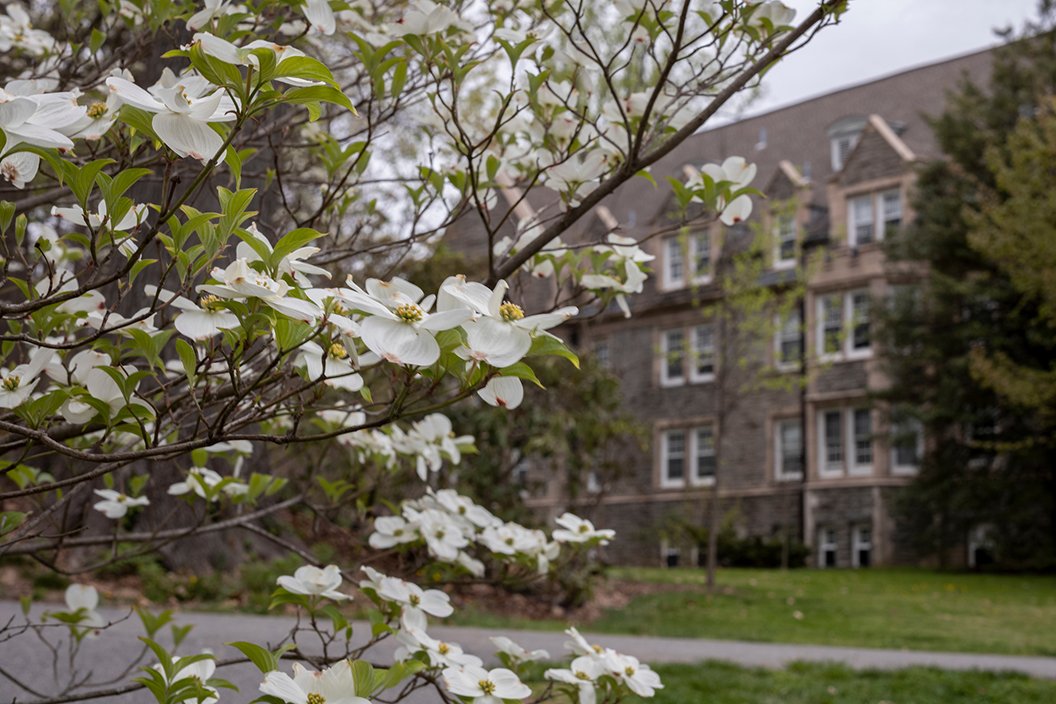
This spring, the College celebrates the retirement of eight esteemed faculty members — Syd Carpenter, Erik A. Cheever '82, Allison Dorsey, Amy Graves, Allen J. Kuharski, Robert Paley, Rick Valelly '75, and Amy Cheng Vollmer — and three instructional staff members — Donna Halley, Jim Heller, and Jocelyne Noveral.
Though they will be missed on campus, each leaves behind an indelible legacy, fostered through notable scholarship, devoted mentorship, and lasting commitment to the liberal arts.
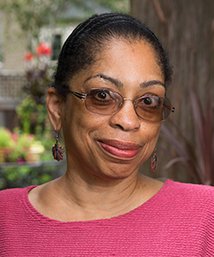 Working as an artist has been the source of joy and all that has been meaningful for Syd Carpenter, Professor of Art and Peggy Chan Professorship in Black Studies. A faculty member since 1991, she earned her bachelor’s and master’s from the Tyler School of Art, focusing on ceramics. She has been researching African-American farming and gardening since she learned that her own grandmother was a famous “victory” gardener in Pittsburgh during World War II. Carpenter has participated in gardening projects, including the 2021 the collaborative hugel garden at Woodmere Art Museum.
Working as an artist has been the source of joy and all that has been meaningful for Syd Carpenter, Professor of Art and Peggy Chan Professorship in Black Studies. A faculty member since 1991, she earned her bachelor’s and master’s from the Tyler School of Art, focusing on ceramics. She has been researching African-American farming and gardening since she learned that her own grandmother was a famous “victory” gardener in Pittsburgh during World War II. Carpenter has participated in gardening projects, including the 2021 the collaborative hugel garden at Woodmere Art Museum.
Carpenter’s ceramic work is in the collection of the Philadelphia Museum of Art, the University of Illinois, the Philadelphia Convention Center, the Canton Museum of Art, The Erie Art Museum, the Renwick Gallery of the Smithsonian American Art Museum, the Jingdezhen Ceramic Institute, and numerous private collections.
“My years as an artist at Swarthmore have been fruitful, and as a creative person, the College has provided fertile ground in which my art has thrived,” says Carpenter. “I didn’t feel my art was ever in jeopardy as an outcome of teaching here. In fact, I always felt energized by the students, my colleagues in the art department, and especially those in Black studies. I am retiring now because so many new opportunities are coming my way,” including printmaking at Brandywine Graphics Workshop, making outdoor land art for the Berman Museum of Ursinus College, and designing a new garden for The Colored Girls Museum.
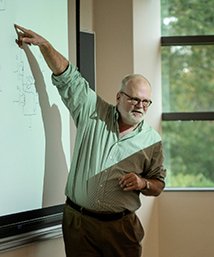 As the Edward Hicks Magill Professor of Mathematics and Natural Sciences, Erik A. Cheever ’82 has taught a variety of courses, from electric circuits to control theory. He has also involved students in his ongoing research, which explored areas that included modeling of biological systems, biological signal processing and biosequence analysis, neural networks for control and pattern recognition, and non-invasive optical measurement of percentage oxygen saturation of hemoglobin.
As the Edward Hicks Magill Professor of Mathematics and Natural Sciences, Erik A. Cheever ’82 has taught a variety of courses, from electric circuits to control theory. He has also involved students in his ongoing research, which explored areas that included modeling of biological systems, biological signal processing and biosequence analysis, neural networks for control and pattern recognition, and non-invasive optical measurement of percentage oxygen saturation of hemoglobin.
Between graduating from Swarthmore and returning to the College to teach in 1986, Cheever earned a master’s and Ph.D. in bioengineering from The University of Pennsylvania, with a dissertation focus on medical applications of microwave radiometry. He also has studied techniques for comparing extremely long sequences of DNA. A paper he and a Swarthmore colleague wrote for Computers in Education [CoED] Journal won the Hardin-Simmons Prize in 2013 for the outstanding CoED Journal paper on computational methods. Cheever has also been published in a number of other journals and conference proceedings.
“When I started teaching at Swarthmore more than three decades ago, I had no expectation that I would spend my entire working career at the College,” says Cheever. “However, I feel fortunate to be able to say that I really cannot imagine a better job than the one that I have. I feel especially indebted to the students for keeping things interesting, challenging, and fun.”
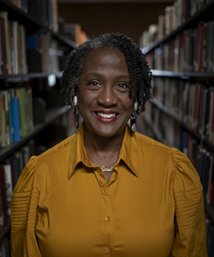 Professor of History Allison Dorsey started teaching at Swarthmore in 1997 and received the Kathryn L. Morgan award in 2009 for her contributions to the College’s Black community. Previously, she served on the faculty of Hamilton College and Oberlin College, as well as being a research fellow at the Martin Luther King Jr. Papers Project at Stanford University. In 2006, she completed a National Endowment for the Humanities Summer Seminar on the Black Freedom Struggle at Harvard University.
Professor of History Allison Dorsey started teaching at Swarthmore in 1997 and received the Kathryn L. Morgan award in 2009 for her contributions to the College’s Black community. Previously, she served on the faculty of Hamilton College and Oberlin College, as well as being a research fellow at the Martin Luther King Jr. Papers Project at Stanford University. In 2006, she completed a National Endowment for the Humanities Summer Seminar on the Black Freedom Struggle at Harvard University.
Dorsey received her master’s and Ph.D. in American history from the University of California at Irvine. Her academic interests include the history of African Americans, the 20th-century civil rights movement, and African-American film and food history, along with research on Black freedmen along the Georgia seacoast. She is the author of the book To Build Our Lives Together: Community Formation in Black Atlanta, 1875-1906 and the article ‘We’ve Taken Old Gods and Given Them New Names’: The Spirit of Sankofa in Daughters of the Dust, and has been published in numerous journals and publications. Dorsey was founding director of the Swarthmore Summer Scholars Program (S3P) from 2014 to 2017.
“Thrilled but surprised to receive the news of my hire at Swarthmore College, I was eager and excited to begin my new position,” says Dorsey. “I was startled upon arrival to be told I was an ‘unusual hire’ and ‘not a good fit’ for the College. Twenty-five years later, having designed interesting classes and projects, taught extraordinarily talented students, and created a home and a beautiful garden enjoyed by family, friends, and students, I marvel at and am thankful for the naysayers.”
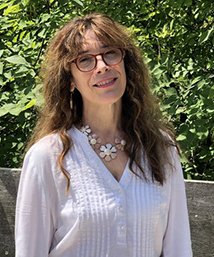 With research interests that include simulations of soft condensed matter systems, gender and science, and computational physics education, Amy Graves, who started at the College as Amy Bug in the fall of 1988, is Walter Kemp Professor in the Natural Sciences, Professor of Physics, and past Chair of the Department Physics & Astronomy. She became a fellow of the American Physical Society in 2018, a distinction that is given to no more than one half of one percent of the society’s membership each year.
With research interests that include simulations of soft condensed matter systems, gender and science, and computational physics education, Amy Graves, who started at the College as Amy Bug in the fall of 1988, is Walter Kemp Professor in the Natural Sciences, Professor of Physics, and past Chair of the Department Physics & Astronomy. She became a fellow of the American Physical Society in 2018, a distinction that is given to no more than one half of one percent of the society’s membership each year.
Graves was salutatorian of her undergraduate class at Williams College and earned her Ph.D. in physics from The Massachusetts Institute of Technology. She has held various visiting positions, including guest scientist at Lawrence Livermore National Labs, and has received numerous grants, including two Petroleum Research Fund awards and a National Science Foundation (NSF) Visiting Professorship for Women. She is a principal investigator on a bi-institutional NSF grant of over $600,000, on which she collaborates with Assistant Professor of Physics Cacey Bester. Graves is a member of Phi Beta Kappa, has chaired the Division of Computational Physics of the American Physical Society (APS), and serves on the APS Committee on the Status of Women in Physics.
“Every day, especially during the pandemic, I have given teaching and research with students my best,” says Graves. “Now, after 34 years, two wonderful children, and hundreds of exceptional students, I’m content to stop teaching, continue with research, and finally travel.” Her good memories include “wise colleagues, seeing understanding shine on students’ faces, and breaking some new ground as a woman in physics.”
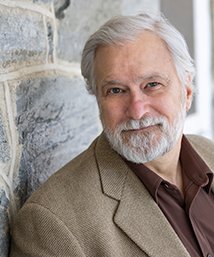 Professor Emeritus of Theater Allen J. Kuharski is a widely published and translated authority on Polish theater, contemporary theater directors, and devised theater, and his translations of plays from French and Polish have been performed nationally and internationally.
Professor Emeritus of Theater Allen J. Kuharski is a widely published and translated authority on Polish theater, contemporary theater directors, and devised theater, and his translations of plays from French and Polish have been performed nationally and internationally.
Kuharski taught directing, theater history, and performance theory, and pioneered his department’s work with the Honors Program; co-founded and co-directed Swarthmore’s study abroad programs in theater, dance, and environmental studies in Poland; held the Stephen Lang Chair in Performing Arts, and has served as chair of the Sager Fund and Cooper Foundation committees. The Kuharski Theater Studio was named for him in 2014. His work has received Obie and Fringe First Awards, and he’s twice been recognized with honors from the Polish government.
Kuharski received his Ph.D. in 1991 from the director/scholar program in dramatic art at University of California, Berkeley, after graduating in theater and drama from University of Wisconsin–Madison. He is a member of Phi Beta Kappa and has served as president of the Swarthmore chapter, and was a Fulbright Scholar in Poland in 1981 and 2017–18.
“It has been a very rich and challenging experience to figure out how to bring the total-quality principles of a Swarthmore liberal arts education into alignment with those same values in serious artistic work,” says Kuharski. “Swarthmore’s greatest virtue is its inefficiency in the pursuit of excellence, creativity, and the discovery of new knowledge. This is also the secret to Swarthmore’s potential radicality.”
The department of theater will be hosting a symposium on Saturday, May 7 to celebrate Kuharski's time at the College. Learn more.
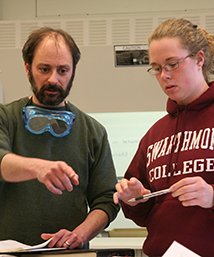 Edmund Allen Professor Emeritus and Emeritus Professor of Organic Chemistry Robert Paley started his career at the College in 1989, with research interests in synthetic organic chemistry, specifically organometallics and asymmetric synthesis. He was awarded a Henry Dreyfus Teacher-Scholar Award in 2000 and helped 11 of his research students acquire summer funding from Pfizer or the American Chemical Society. Paley spearheaded the chemistry department’s proposal for a new FT-NMR spectrometer from the National Science Foundation, receiving a $269,000 award in 2013.
Edmund Allen Professor Emeritus and Emeritus Professor of Organic Chemistry Robert Paley started his career at the College in 1989, with research interests in synthetic organic chemistry, specifically organometallics and asymmetric synthesis. He was awarded a Henry Dreyfus Teacher-Scholar Award in 2000 and helped 11 of his research students acquire summer funding from Pfizer or the American Chemical Society. Paley spearheaded the chemistry department’s proposal for a new FT-NMR spectrometer from the National Science Foundation, receiving a $269,000 award in 2013.
He earned his bachelor’s degree in chemistry at McGill University, Montreal, followed by a Ph.D. in organic chemistry from the University of Michigan five years later. In retirement, Paley will split his time between Lisbon, Portugal, and Stockholm, and plans to learn languages and jazz guitar.
At Swarthmore he was recognized for “developing one of the few sustained research programs in synthetic organic chemistry at a liberal arts college/primarily undergraduate institution, which required close training and mentoring of 42 undergraduate thesis students in operationally demanding laboratory work.” Paley added that nine of these students (so far) have gone on to faculty positions, and that his students published 15 research papers in scientific journals, had one review article, and had an invited contribution to an encyclopedia.
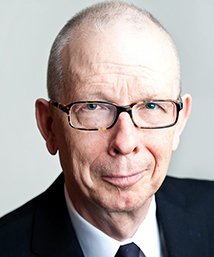 Claude C. Smith ’14 Professor of Political Science Rick Valelly ’75 has taught at the College since 1993. His research focused on the rise and fall of formal and informal barriers to public service by gays and lesbians within the presidency and the executive branch, the foreign service, the armed forces and national security agencies, Congress, the Supreme Court, and the federal courts.
Claude C. Smith ’14 Professor of Political Science Rick Valelly ’75 has taught at the College since 1993. His research focused on the rise and fall of formal and informal barriers to public service by gays and lesbians within the presidency and the executive branch, the foreign service, the armed forces and national security agencies, Congress, the Supreme Court, and the federal courts.
Valelly previously taught at The Massachusetts Institute of Technology and College of the Holy Cross, and has authored three books. The Two Reconstructions: The Struggle for Black Enfranchisement received awards that included the J. David Greenstone Prize in the field of politics and history, the V.O. Key Jr. Book Award of the Southern Political Science Association for best book on Southern politics, and the Ralph Bunche Award for a book on race and ethnicity from the American Political Science Association. In 1997, Valelly received a research fellowship from the National Endowment for the Humanities that was part of the National Conversation on American Pluralism and Identity initiative, among other such fellowships.
“Since joining the faculty, I have had a wonderful experience as a Swarthmore College professor,” says Valelly. “From seminar dinners to political science T-shirts and everything in between, I have thoroughly enjoyed my work with the smartest students in the country. In addition, my colleagues were wonderful. The College offered great support for my research, allowing me to publish and share my learning.”
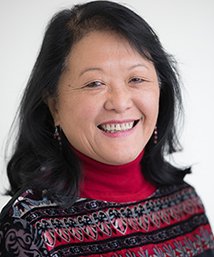 Over a three-decade career at Swarthmore, Amy Cheng Vollmer, Isaac H. Clothier Jr. Professor of Biology, has also chaired the Department of Biology twice, for a total of five years, and served as director of College’s Summer Scholars Program (S3P) from 2017 to 2021. “For the last seven years of my career at Swarthmore, being involved with the Summer Scholars Program has been most satisfying,” she says. “I learned so much from the scholars and changed the way that I taught all students.”
Over a three-decade career at Swarthmore, Amy Cheng Vollmer, Isaac H. Clothier Jr. Professor of Biology, has also chaired the Department of Biology twice, for a total of five years, and served as director of College’s Summer Scholars Program (S3P) from 2017 to 2021. “For the last seven years of my career at Swarthmore, being involved with the Summer Scholars Program has been most satisfying,” she says. “I learned so much from the scholars and changed the way that I taught all students.”
Vollmer has received numerous grant awards, including serving as a co-principal investigator on grants from the Research Corporation for Science Advancement, the Merck-AAAS Undergraduate Science Research Program, and the National Science Foundation. She also served as an inaugural Luhrs Faculty Fellow at the Center for Innovation and Leadership (CIL) at Swarthmore, was selected as a Phi Beta Kappa Visiting Scholar, and was elected a fellow of the American Academy of Microbiology.
“I am grateful for a career that I could not possibly have imagined,” says Vollmer. “My biology colleagues challenged me to be the best version of myself as a teacher and scientist by their examples and through their encouragement. The support provided by the College allowed me to be involved with microbiologists on an international level and to serve in leadership positions with the American Society for Microbiology.”
Retirement celebrations for Amy Cheng Vollmer will be hosted by the Department of Biology on Friday, April 29 and Saturday, April 30. Learn more.
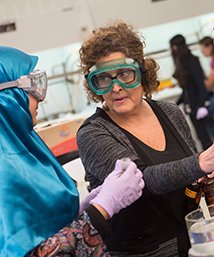 Donna Halley, senior laboratory instructor for chemistry, came to Swarthmore in 1996, and has taught laboratory courses in the organic, inorganic, physical, analytical, and general chemistry laboratories. She also developed and streamlined new laboratory exercises for students, and served as manager of student employees for the department. Halley has experience with analytical instrumentation, synthesis, and various characterization techniques.
Donna Halley, senior laboratory instructor for chemistry, came to Swarthmore in 1996, and has taught laboratory courses in the organic, inorganic, physical, analytical, and general chemistry laboratories. She also developed and streamlined new laboratory exercises for students, and served as manager of student employees for the department. Halley has experience with analytical instrumentation, synthesis, and various characterization techniques.
She is also the former education coordinator for the Atlantic Bay Mountain Region of Sweet Adelines International, and is currently a member of its International Judging Program as an approved candidate judge in the category of visual communication.
“In my spare time, I raise Monarch Butterflies in the summer,” says Halley, “and sing a cappella harmony.”
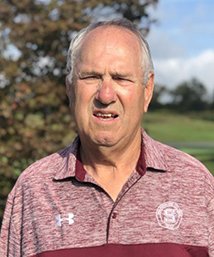 Head Golf Coach Jim Heller has guided the Swarthmore program since the 2005-06 season. The Garnet have recorded 10 top-four finishes at the Centennial Conference Championships since then, including second-place finishes in 2007, 2012, and 2017.
Head Golf Coach Jim Heller has guided the Swarthmore program since the 2005-06 season. The Garnet have recorded 10 top-four finishes at the Centennial Conference Championships since then, including second-place finishes in 2007, 2012, and 2017.
Heller was named the 2012 and 2017 Centennial Conference Coach of the Year, and awarded the Golf Coaches Association of America Service Award in 2019. He has also had 10 student-athletes at Swarthmore combine for 14 All-Centennial selections.
A resident of Glen Mills, Pa., Heller spent 10 years prior to coming to Swarthmore as the head golf coach, freshmen girls' basketball coach, and voluntary assistant athletic director at nearby Springfield (Delaware County) High School. A long-time member of the Springfield Police Department, Heller retired in 1995 after over 24 years of service.
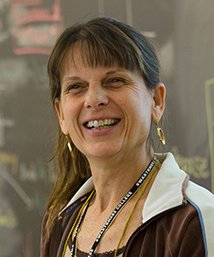 Jocelyne Noveral, laboratory instructor for biology, has taught various courses at the College, ranging from labs in Organismal and Population Biology and Cellular and Molecular Biology to a fitness course on step aerobics.
Jocelyne Noveral, laboratory instructor for biology, has taught various courses at the College, ranging from labs in Organismal and Population Biology and Cellular and Molecular Biology to a fitness course on step aerobics.
In 2021, she co-authored “Quantifying Planarian Behavior as an Introduction to Object Tracking and Signal Processing,” published in the The Biophysicist, for which she and a colleague tested early versions of the module and helped in the design of the final version. Among her other published works was “Are Chicken Embryos Endotherms or Ectotherms? A Laboratory Exercise Integrating Concepts in Thermoregulation and Metabolism,” which she co-authored for Advances in Physiology Education.
Noveral also supported the Biology Department’s collaboration with the Chester Children’s Chorus to support Science for Kids, a summer and academic year program focused on engaging children from the nearby Chester-Upland school district with experimental science.


